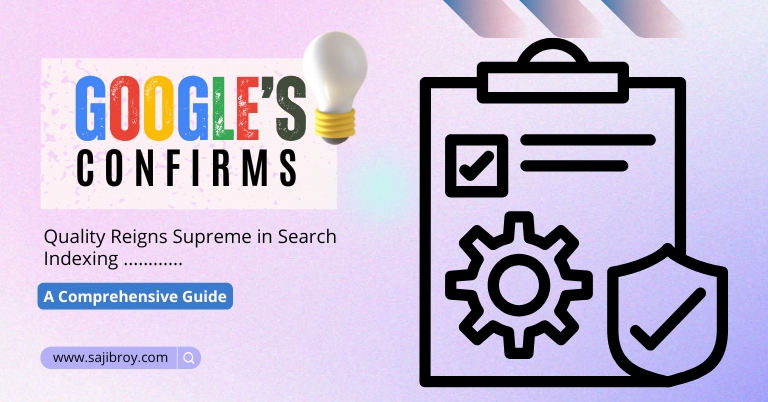To obtain a Google Analytics certification, follow these steps precisely: Complete the Google Analytics for Beginners course, and pass the Google Analytics individual qualification (gaiq) exam. This certification is essential for anyone seeking to demonstrate proficiency in using Google Analytics to analyze website traffic and performance.
It is recognized globally and demonstrates expertise in leveraging Google Analytics tools effectively. This certification provides a valuable credential for marketers, analysts, and website owners who want to enhance their skills and understanding of data-driven decision-making. By becoming certified in Google Analytics, individuals can improve their ability to measure, track, and optimize online marketing efforts, leading to enhanced insights and improved business outcomes.
Let's See the Topic Overview
The Benefits Of Google Analytics Certification For Digital Marketers
Google Analytics certification offers invaluable benefits to digital marketers, providing them with a deep understanding of website data and performance. To obtain this certification, digital marketers can follow a structured learning path provided by Google, complete the necessary courses, and pass the certification exam.

Validating Your Expertise In Web Analytics
- Google Analytics certification serves as a validation of your proficiency in web analytics, demonstrating your understanding of the platform’s core features and metrics.
- It showcases your dedication to staying updated with industry best practices and your commitment to professional development.
- Earning this certification highlights your competence in leveraging data-driven insights to optimize digital marketing strategies.
Enhancing Your Job Prospects
- Holding a Google Analytics certification can significantly enhance your job prospects in the digital marketing field.
- Employers often value individuals who have demonstrated their expertise in web analytics through this certification.
- It sets you apart from other candidates and gives you an edge during job interviews.
- Certification holders are typically seen as more knowledgeable and skilled, increasing their chances of securing desired employment opportunities.
Gaining A Competitive Edge In The Industry
- In today’s highly competitive digital marketing landscape, having a Google Analytics certification can give you a distinct advantage.
- It demonstrates your commitment to continuous learning and professional development, a quality that is highly valued in the industry.
- A certification showcases your ability to navigate and analyze data effectively, allowing you to make data-driven decisions that drive results.
- With this added expertise, you can differentiate yourself from competitors and position yourself as a valuable asset to any organization.
Understanding The Exam Structure And Content
Discover how to obtain your Google Analytics certification by gaining a thorough understanding of the exam structure and content. Learn the essential strategies and knowledge needed to succeed in this valuable accreditation.
Getting Google Analytics certification can be a significant step towards advancing your career in the digital marketing industry. Not only does it demonstrate your expertise in analyzing website data, but it also enhances your credibility as a professional. Understandably, the certification exam can feel intimidating, but with proper preparation and understanding of the exam structure and content, you can increase your chances of success.
In this section, we will delve into the overview of the exam format and the key topics covered in the Google Analytics certification exam in a concise and informative manner.
Overview Of The Exam Format:
- The Google Analytics certification exam consists of multiple-choice questions that assess your understanding of Google Analytics concepts, tools, and implementation techniques.
- The exam is conducted online and is free of charge.
- The total duration of the exam is 90 minutes.
- In order to pass, you need to achieve a score of 80% or higher.
- Upon passing the exam, you will receive a certificate valid for 12 months.
Key Topics Covered In The Exam:
- Understanding Google Analytics: This topic assesses your understanding of Google Analytics terminology, key metrics, and the basic functionalities of the platform.
- Setting up Google Analytics: This section focuses on the process of implementing Google Analytics tracking code on websites and configuring essential settings.
- Navigating the interface: Here, you will be tested on your ability to navigate through the Google Analytics interface and utilize various reports and features effectively.
- Analyzing reports: This topic examines your skills in interpreting and analyzing data presented in different types of reports, including audience, acquisition, behavior, and conversion reports.
- Conversion tracking and goals: This section evaluates your knowledge of setting up and tracking goals, e-commerce transactions, and other key performance indicators (KPIs) within Google Analytics.
- Campaign tracking: Assessing your understanding of campaign tracking parameters, UTM codes, and the analysis of marketing campaigns is the focus of this topic.
- Advanced features: This section covers advanced topics such as custom segments, custom reports, filters, and dashboards to assess your ability to utilize the advanced features of Google Analytics effectively.
By familiarizing yourself with the exam format and the key topics covered, you can focus your preparation efforts on these areas to optimize your chances of achieving Google Analytics certification. Remember to utilize available study resources, practice with sample questions, and apply your knowledge through hands-on experience to gain a comprehensive understanding of Google Analytics concepts and tools.
Essential Study Materials And Resources
To get your Google Analytics certification, it is essential to have the right study materials and resources. Access comprehensive online courses, practice exams, and study guides tailored for the certification exam to ensure your success. Boost your knowledge and skills with these resources and enhance your career opportunities in the digital marketing field.
Preparing for the Google Analytics certification exam requires a comprehensive understanding of the platform and its features. To ensure your success, it is recommended to utilize the following study materials and resources:
Recommended Study Guides
- Google Analytics for Beginners: This comprehensive online guide provided by Google offers a step-by-step introduction to the platform’s key concepts and functionalities. It covers topics such as tracking, reporting, and data analysis, making it an ideal starting point for beginners.
- Google Analytics Academy: As an official learning resource from Google, the Analytics Academy provides free online courses designed to help individuals gain expertise in using Google Analytics effectively. The courses cover a wide range of topics, from basic principles to advanced analytics techniques.
- Web Analytics 2.0 by Avinash Kaushik: This book serves as a valuable resource for those seeking a deeper understanding of web analytics and how to leverage data to generate actionable insights. Avinash Kaushik, a renowned expert in the field, breaks down complex concepts and offers practical guidance.
Online Courses And Tutorials
- Udemy: Udemy offers a variety of online courses that cater to different learning needs and skill levels. Some popular courses include “Google Analytics Certification: get certified in just 2 days,” “Google Analytics Masterclass,” and “Google Analytics Essentials.”
- Coursera: Coursera provides access to courses offered by top universities and industry experts. The “Google Analytics Certification: Become Certified & Earn More” course covers all the necessary topics to help you pass the certification exam.
- YouTube tutorials: Many experts in the field of digital marketing and analytics share their knowledge and insights through YouTube tutorials. Channels such as “Measurement Protocol” and “Google Analytics” offer free tutorials and tips to enhance your understanding of the platform.
Practice Exams And Sample Questions
- Google Analytics is exam sample questions: Google provides a set of sample questions that mimic the format and difficulty level of the actual certification exam. Practicing these questions will help you familiarize yourself with the exam structure and assess your level of preparedness.
- Google Analytics iq exam prep course: This comprehensive course, available on Udemy, includes practice exams and quizzes to evaluate your knowledge and readiness for the certification exam. It also offers detailed explanations for each question to help you understand the underlying concepts.
Remember, while these study materials and resources are valuable assets in your preparation, hands-on experience using Google Analytics and exploring real-world scenarios will further enhance your understanding of the platform. So, put your knowledge into practice and track your progress as you work towards earning your Google Analytics certification.
Good luck!
Creating A Study Plan
Looking to get Google Analytics certification? Create a study plan to efficiently prepare for the exam and gain valuable insights into website analytics. Develop a schedule, utilize online resources, and practice with sample questions to increase your chances of passing the certification test.

Setting realistic goals and timelines:
- Determine the level of knowledge and experience you already have with Google Analytics.
- Set clear goals for what you want to achieve with the certification.
- Break down the certification requirements into manageable tasks.
- Set a realistic timeline for each task and the overall certification completion.
Allocating time for study and practice:
- Assess your current schedule and determine how much time you can dedicate to studying.
- Create a study schedule that includes dedicated time for learning and practicing Google Analytics concepts.
- Prioritize your study time by focusing on areas that you need improvement in.
- Regularly review and revise your study plan to keep it updated and relevant.
By following these steps, you can create an effective study plan that will help you prepare for the Google Analytics certification exam. Remember that consistency and dedication are key to success in gaining the certification.
Familiarizing Yourself With Google Analytics Interface
Looking to get Google Analytics certification? Familiarize yourself with the interface through various resources and gain a deeper understanding of how it works. Improve your analytics skills and increase your chances of obtaining the certification.
The Google Analytics interface may seem overwhelming at first, but once you become familiar with it, you’ll be able to navigate through different sections and reports easily. Understanding the terminology and metrics used in Google Analytics is important to make the most out of this powerful tool.
Navigating The Different Sections And Reports:
- The Google Analytics dashboard: This is the homepage where you’ll find an overview of key metrics and reports. You can customize the dashboard to display the data that is most relevant to you.
- Audience section: Here, you can gain insights into your website visitors. You can explore metrics like user demographics, interests, behavior, and more.
- Acquisition section: This section helps you understand how users are finding your website. You can track the performance of different traffic sources, including organic search, social media, paid advertising, and direct traffic.
- Behavior section: This section offers detailed information about how users interact with your website. You can analyze page views, bounce rates, site speed, and other engagement metrics.
- Conversion section: This section focuses on goals and conversions. You can set up and track different types of goals, such as completing a purchase or filling out a form.
- Real-time section: This section allows you to monitor the live activity on your website, giving you insights into who is currently visiting your site, what they are doing, and which pages they are viewing.
Understanding The Terminology And Metrics:
- Sessions: A session represents a single visit to your website. It starts when a user arrives on your site and ends after a period of inactivity or when they leave.
- Pageviews: The number of times a page on your website has been viewed by users.
- Bounce rate: The percentage of users who leave your website after viewing only one page. A high bounce rate may indicate that your website needs improvement in terms of content or user experience.
- Conversion rate: The percentage of users who complete a specific goal, such as making a purchase or signing up for a newsletter.
- Average session duration: The average length of time a user spends on your website during a single session.
- Traffic sources: The different channels through which users arrive on your website, such as organic search, social media, or referral links.
By familiarizing yourself with the Google Analytics interface, you will be able to navigate through the different sections and reports effortlessly. Understanding the terminology and metrics will enable you to analyze the data effectively and make data-driven decisions to improve your website’s performance.
So, let’s dive in and explore the world of Google Analytics!
Understanding Key Concepts And Metrics
This concise guide offers valuable insights into understanding key concepts and metrics for achieving Google Analytics certification. Discover the essential steps and tips to enhance your knowledge and gain expertise in this field.

In order to obtain a Google Analytics certification, it is crucial to familiarize yourself with key concepts and metrics used for measuring website performance. Demystifying metrics like bounce rate, session duration, and conversion rate will enable you to understand user behavior and make informed decisions to optimize your website.
Apply segmentation and filtering techniques to gain actionable insights from your data. Let’s explore these concepts further:
Demystifying Metrics Like Bounce Rate, Session Duration, And Conversion Rate:
- Bounce rate: This metric indicates the percentage of visitors who land on your website and then leave without interacting with any additional pages. A high bounce rate could suggest that your landing pages are not effective or that your website does not meet visitor expectations.
- Session duration: This metric measures the average time users spend on your website during a session. It provides insights into user engagement and can help you understand how compelling and valuable your content is.
- Conversion rate: This metric represents the percentage of visitors who complete a desired action, such as making a purchase or filling out a form. It is a vital indicator of the effectiveness of your website’s call-to-action and overall performance.
Understanding these metrics will enable you to assess your website’s strengths and weaknesses, allowing you to make data-driven decisions for improvement.
Applying Segmentation And Filtering To Gain Actionable Insights:
Segmentation and filtering are powerful techniques that allow you to dissect your data and obtain valuable insights. By applying these techniques, you can identify patterns and trends that are not immediately apparent in raw data. Here’s how you can apply segmentation and filtering:
- Segmentation: Segmenting your data involves dividing it into specific groups or segments based on various attributes, such as demographics, behavior, acquisition source, or device category. This helps you analyze different subsets of your audience and understand their unique characteristics and preferences.
- Filtering: Filtering your data allows you to isolate specific subsets or segments of your audience to gain insights into their behavior. You can filter based on various dimensions, such as geographic location, traffic sources, or user interactions. By filtering your data, you can focus on specific segments and make informed decisions to improve your website’s performance.
By applying segmentation and filtering techniques, you can easily identify opportunities for improvement and optimize your website to cater to the needs of your target audience.
Remember, understanding key metrics and utilizing segmentation and filtering techniques are essential steps in obtaining Google Analytics certification.
Implementing Google Analytics Tracking Code
Looking to get your Google Analytics certification? Start by implementing the Google Analytics tracking code on your website. It’s an essential step in accurately tracking and analyzing your website’s performance.

Setting up a new Google Analytics account is just the first step in getting Google Analytics certification. To effectively track and analyze your website’s data, you need to install the Google Analytics tracking code on your website. This code enables Google Analytics to collect data and provide valuable insights into your website’s performance.
Here’s how you can implement the tracking code:
Setting Up A New Google Analytics Account:
- Go to the Google Analytics website and sign in with your Google account.
- Click on the “admin” tab at the bottom left corner of the page.
- Under the “Account” column, click on “Create account” and fill in the necessary details such as the account name, website name, and URL.
- Select the data-sharing settings based on your preference and click on “next”.
- In the “Property” column, click on “create property”. Fill in the required information including the property name and website URL.
- Choose the appropriate industry category and reporting time zone.
- Select the data sharing settings and click on “create”.
- In the “view” column, click on “create view”. Choose the reporting view settings and click on “Create view”.
Installing The Tracking Code On Your Website:
- Copy the tracking code provided by Google Analytics.
- Open your website’s html source code editor.
- Save the changes and upload the modified HTML page to your website’s server.
- Wait for Google Analytics to start collecting data from your website.
It’s important to note that installing the Google Analytics tracking code correctly ensures accurate data collection. Make sure to check your website for any errors and verify that the tracking code is installed on all your web pages.
By successfully implementing the Google Analytics tracking code, you are one step closer to gaining valuable insights about your website’s performance, user behavior, and much more. Start exploring the world of analytics and make data-driven decisions to optimize your website’s performance!
Analyzing And Interpreting Data
Looking to get Google Analytics certification? Learn how to analyze and interpret data with this comprehensive guide. Gain the skills and knowledge needed to become certified in Google Analytics and unlock valuable insights for your business.
Analyzing and interpreting data is a crucial aspect of obtaining a Google Analytics certification. By diving deep into the data collected from your website, you can gain valuable insights that will help you make informed decisions and optimize your online presence.
In this section, we will explore different reports and dashboards, as well as learn how to utilize advanced features like custom dimensions and goals. Let’s get started!
Exploring Different Reports And Dashboards
To truly understand your website’s performance and user behavior, you need to become familiar with the various reports and dashboards available in Google Analytics. Here are some key reports and dashboards worth exploring:
- Audience overview: This report provides an overview of your website’s audience demographics, such as age, gender, and location. It helps you gain insights about your visitors and tailor your content accordingly.
- Acquisition report: This report shows how users are finding your website, whether from search engines, social media, or other sources. It helps you identify your most effective marketing channels.
- Behavior flow: This report visualizes how users navigate through your website, showing the most common paths they take. It helps you optimize your website’s structure and identify any bottlenecks in the user journey.
- Conversion report: This report tracks the effectiveness of your goals and conversions. It helps you measure the success of your website in terms of lead generation, purchases, or other desired actions.
Utilizing Advanced Features Like Custom Dimensions And Goals
Google Analytics offers advanced features that enable you to tailor the data collection to your specific needs. Two such features are custom dimensions and goals. Here’s how you can utilize them:
- Custom dimensions: Custom dimensions allow you to collect and analyze additional data about your users and their interactions on your website. For example, you can create custom dimensions to track user engagement with specific sections of your site or to segment users based on their membership status. This advanced feature helps you gain deeper insights beyond the standard data points.
- Goals: Goals in Google Analytics allow you to track and measure specific actions that are valuable to your business. Whether it’s a purchase, a lead submission, or a newsletter signup, setting up goals enables you to monitor and optimize the conversion rates. By tracking goal completions, you can identify areas for improvement and make data-driven decisions to enhance your website’s performance.
Analyzing and interpreting data is a fundamental part of earning your Google Analytics certification. By exploring different reports and dashboards, and utilizing advanced features like custom dimensions and goals, you can gain valuable insights and take your website’s performance to the next level.
So, dive into the data and unlock the power of Google Analytics!
Troubleshooting Common Issues
Looking to get your Google Analytics certification? Troubleshoot common issues and find out how to ace the certification exam with our expert tips and guidance. Boost your analytics skills and take your career to the next level.
When pursuing your Google Analytics certification, it’s essential to be prepared to encounter common issues that may arise during the process. Troubleshooting these problems will help ensure accurate and reliable data collection, which is crucial for effective analysis and decision-making.
In this section, we’ll explore the two primary areas where problems often occur and provide solutions to address them.
Identifying Tracking Errors And Discrepancies:
- Inconsistent tracking codes: Check if the tracking codes are correctly implemented on all relevant pages, ensuring they are present and placed in the appropriate locations.
- Duplicate tracking codes: Be cautious of instances where multiple tracking codes have been inadvertently added, causing discrepancies in recorded data.
- Cross-domain tracking issues: Identify any issues with cross-domain tracking, such as missing referral information or gaps in the data flow between different domains.
- Incorrect filters or segments: Review the filters and segments applied to your data to ensure they are correctly configured and not causing any discrepancies.
Resolving Technical Issues With Data Collection:
- Javascript errors: Monitor for any javascript errors on your website, as they can interfere with the proper functioning of Google Analytics tracking.
- Ad blockers and browser extensions: Consider the impact of ad blockers and certain browser extensions that may block or modify tracking information, leading to incomplete data collection.
- Slow-loading pages: Identify pages that have slow loading times, as this can impact the accurate tracking of user interactions and behavior.
- Bot and spam traffic: Implement measures to filter out bot and spam traffic, which can skew your data and affect the accuracy of your analysis.
By proactively identifying and troubleshooting these common issues related to tracking errors and technical challenges in data collection, you can ensure that your Google Analytics certification journey is smooth and that you possess accurate and reliable data for robust analysis.
Keep in mind that regular monitoring and maintenance are crucial to maintain the integrity of your analytics implementation.
Effective Time Management During The Exam
Learn how to effectively manage your time during exams to maximize your productivity and ensure success in obtaining your Google Analytics certification. Follow these tips to stay organized and focused throughout the exam period.
Effective Time Management During The Exam:
Time management plays a crucial role when attempting the Google Analytics certification exam. To optimize your chances of success, it is essential to prioritize questions based on difficulty and utilize the review feature to double-check your answers. Here are some valuable tips to effectively manage your time during the exam:
Prioritizing Questions Based On Difficulty:
- Start by answering the questions you find easy. This will boost your confidence and help you make progress quickly.
- Flag difficult questions and come back to them later. By prioritizing easier questions first, you ensure that you maximize your productivity and don’t waste time getting stuck on challenging ones.
- Allocate more time to complex or calculation-intensive questions. These may require additional effort and concentration, so it’s wise to allocate sufficient time for them.
Utilizing The Review Feature To Double-Check Answers:
- Before submitting your answers, make sure to review them thoroughly. The exam platform provides a review feature that allows you to revisit and modify your responses.
- Use the review feature strategically to allocate your remaining time wisely. If you have time left, review all the questions to ensure accuracy before submitting.
- Pay extra attention to questions that you had initially flagged as difficult. Reviewing them with fresh eyes might help you identify mistakes or gain a better understanding.
Effective time management during the Google Analytics certification exam is crucial for success. By prioritizing questions based on difficulty and utilizing the review feature strategically, you can optimize your performance and increase your chances of earning the certification. Remember to manage your time wisely and maintain a calm and focused mindset throughout the exam.
Good luck!
Answering Exam Questions Strategically
Learn how to strategically answer exam questions and earn your Google Analytics certification. This comprehensive guide provides valuable insights and tips for success.
When preparing for the Google Analytics certification exam, it’s important to have a strategic approach to answering the exam questions. By identifying keywords and clues in the questions and eliminating incorrect answer choices, you can increase your chances of selecting the correct answers.
Here are some tips to help you navigate the exam successfully:
Identifying Keywords And Clues In The Question:
- Read the question carefully: Take your time to understand what the question is asking before jumping to the answer choices.
- Identify keywords: Look for keywords that are central to the question. These can give you a clue about what concept the question is testing.
- Pay attention to modifiers: Words like “not,” “always,” or “best” can significantly impact the correct answer choice.
- Look for context clues: Sometimes, the question may provide additional information that can guide you toward the right answer.
Knowing how to identify keywords and clues in the question is the first step toward answering strategically. The next step is eliminating incorrect answer choices.
Eliminating Incorrect Answer Choices:
- Read all answer options: Make sure you carefully read all the answer choices before making a decision.
- Eliminate obviously incorrect answers: If an answer choice contradicts the information provided in the question, it can be safely eliminated.
- Compare answer choices: Look for differences among the answer choices and identify the ones that are most closely related to the keywords or clues in the question.
- Consider your knowledge and experience: Sometimes, you can use your own knowledge about Google Analytics or your experience working with the tool to rule out incorrect answer choices.
By systematically eliminating incorrect answer choices, you can narrow down your options and increase your chances of selecting the correct answer.
Remember, answering exam questions strategically involves a combination of understanding the question, identifying keywords and clues, and eliminating incorrect answer choices. With practice and familiarity with the Google Analytics concepts, you’ll become more skilled at finding the right answers.
Recap And Revision
Looking for Google Analytics certification? Learn how to achieve it and enhance your data analysis skills with this comprehensive guide on recap and revision.
Consolidating knowledge through practice tests:
- Practice tests are an essential part of preparing for the Google Analytics certification exam.
- Engaging in practice tests helps solidify your understanding of key concepts and familiarize yourself with the exam format.
- By simulating real exam conditions, practice tests enable you to assess your knowledge gaps and identify areas that require further revision.
- Utilize reputable online platforms such as Google Analytics Academy, Udemy, or Coursera, which offer practice tests specifically designed for the certification exam.
- Take advantage of the diverse range of practice questions available, covering topics like Google Analytics terminology, report generation, and data analysis.
- Allocate dedicated time for regular practice test sessions to reinforce your learning and track your progress.
Reviewing key concepts and best practices:
- To reinforce your understanding of Google Analytics, take time to review key concepts and best practices before the certification exam.
- Start by revisiting the Google Analytics Academy courses and lecture notes.
- Pay particular attention to important topics such as setting up analytics accounts, implementing tracking codes, and extracting meaningful insights from data.
- Make use of resources like the Google Analytics help center, where you can find in-depth explanations and examples to clarify any areas of confusion.
- Explore Google Analytics blogs and forums to stay up-to-date with the latest industry trends and best practices.
- Engage in discussions with fellow learners or industry professionals to gain different perspectives and insights.
- Create flashcards or summary notes summarizing key concepts, formulas, and important terminology to aid in quick revision sessions.
Remember, successful preparation for the Google Analytics certification exam requires a balance of theoretical knowledge and practical experience. Regular practice tests and deliberate revision of key concepts will significantly enhance your chances of achieving certification. Keep reviewing, practicing, and expanding your knowledge to become a proficient Google Analytics user.
Good luck!
Continuing Education And Professional Development
Discover how to obtain your Google Analytics certification through continuing education and professional development. Enhance your analytics skills with comprehensive training and practical experience to become certified and take your career to new heights.
To stay up-to-date with the latest trends and advancements in the field of Google Analytics, it is crucial to engage in continuing education and professional development activities. Below are some effective strategies to enhance your knowledge and skills:
Joining Online Communities And Forums:
- Participate in online communities and forums dedicated to Google Analytics. These platforms provide an opportunity to connect with fellow professionals, share knowledge, and seek advice.
- Engage in discussions and ask questions to gain insights and perspectives from experienced individuals in the field.
- Stay updated with the latest industry news and developments shared on these platforms.
- Share your experiences, challenges, and success stories to contribute to the community.
Attending Webinars And Industry Conferences:
- Attend webinars conducted by experts in the field of Google Analytics. These virtual seminars provide in-depth insights into various topics and allow for interactive learning experiences.
- Industry conferences are also a valuable resource for staying updated and networking with professionals. Attend relevant sessions and take advantage of the networking opportunities.
- Make sure to participate actively by taking notes, asking questions, and engaging in discussions during these events.
- Implement the knowledge gained from webinars and conferences in real-life scenarios for practical application.
Remember, continuing education and professional development play a vital role in honing your Google Analytics skills and staying ahead of the curve. By joining online communities, attending webinars, and participating in industry conferences, you can enhance your expertise and expand your professional network.
Stay curious, keep learning, and embrace the ever-evolving world of Google Analytics.
Exploring Advanced Google Analytics Features
Discover the powerful features of advanced Google Analytics that will help you excel in a Google Analytics certification. Master the skills needed to analyze data, track conversions, and gain crucial insights for optimizing your website’s performance. Boost your professional credibility with this certification and take your analytics expertise to the next level.

Diving Deeper Into Analytics With Custom Reports And Segments
Enhance your Google Analytics skills by diving deeper into advanced features like custom reports and segments. These powerful tools allow you to analyze your website data more precisely, gaining valuable insights into user behavior and conversion rates. With custom reports and segments, you can tailor your analytics to focus on specific metrics and dimensions that are most relevant to your business goals.
Let’s explore how you can maximize the potential of these features:
- Custom reports: Utilize custom reports to create tailored analysis that aligns with your unique business objectives. Here’s how you can make the most of this feature:
- Customization: Customize the data displayed in your reports by selecting the dimensions and metrics that are most relevant to your analysis.
- Comparison: Compare different segments of your audience by adding multiple rows to your custom report, allowing you to gain insights into their behavior variations.
- Visualization: Use visualizations like tables, charts, and graphs to present your data in a more digestible and visually appealing manner.
- Automate: Save time by scheduling automated reports that will be delivered directly to your inbox, ensuring you stay on top of your analytics effortlessly.
- Segments: Segments enable you to drill down into specific subsets of your website visitors, helping you understand their distinct characteristics and behaviors. Take advantage of segments by:
- Audience segmentation: Divide your audience into meaningful groups based on criteria such as demographics, behavior, or traffic source. This helps you analyze the performance of different user segments and tailor your marketing strategies accordingly.
- Behavior analysis: Gain insights into how different segments interact with your website by comparing metrics like session duration, pages per session, and bounce rate. This analysis allows you to identify potential areas for improvement and optimization.
- Conversion tracking: Track and measure the effectiveness of your marketing campaigns by creating segments based on specific goals or events, such as form submissions, purchases, or newsletter sign-ups.
- Advanced analysis: Combine multiple segments to explore intricate relationships and interactions between different subsets of your audience, uncovering hidden patterns and opportunities.
By leveraging the custom reports and segments features in Google Analytics, you can unlock a wealth of information about your website’s performance and user behavior. With the ability to customize your reports and dive deep into specific audience subsets, you’ll have the knowledge to make data-driven decisions and optimize your digital strategies for success.
Keeping Up With Google Analytics Updates
Discover how to obtain your Google Analytics certification and stay up to date with the latest updates. Gain insights on the process and requirements to become a certified expert in Google Analytics.
Staying up-to-date with the latest Google Analytics updates is crucial for maintaining your certification and ensuring you are making the most out of this powerful tool. Here are some effective ways to stay on top of Google Analytics updates:
Subscribing To Official Google Analytics Blogs And Newsletters:
- Subscribe to the official Google Analytics blog: Stay in the loop with the latest product announcements, feature updates, and tips and tricks directly from the source.
- Sign up for the Google Analytics newsletter: Receive regular updates delivered straight to your inbox, providing you with valuable insights and news.
Monitoring Industry Trends And Best Practices:
- Follow industry experts on social media platforms: Stay connected with professionals who specialize in Google Analytics and frequently share updates and valuable information.
- Keep an eye on industry forums and communities: Join relevant communities, such as the Google Analytics community on platforms like Reddit or LinkedIn, to engage in discussions and stay informed about the latest trends.
- Attend webinars and conferences: Participate in webinars hosted by Google Analytics experts or attend industry conferences to gain insights into the latest updates, best practices, and strategies.
Remember, the world of analytics is constantly evolving. By actively staying informed and up-to-date, you can ensure that you make the most of Google Analytics, stay ahead of the curve, and maintain your Google Analytics certification.
Frequently Asked Questions On How To Get Google Analytics Certification?
How Do I Get Google Analytics Certification?
To get Google Analytics certification, you need to pass the Google Analytics individual qualification (IQ) exam. Study the course material provided by Google, practice with sample questions, and take the exam online. Once you pass, you’ll receive a certificate that validates your proficiency in using Google Analytics.
Is Google Analytics Certification Free?
Yes, the Google Analytics individual qualification (IQ) exam is free to take. However, you may need to invest time and effort in studying the course material and preparing for the exam.
How Long Does It Take To Get Google Analytics Certified?
The time it takes to get Google Analytics certified depends on your availability and how much time you dedicate to studying. On average, it can take around 2-4 weeks of focused study and practice to prepare for the exam and successfully pass the certification.
What Are The Benefits Of Google Analytics Certification?
Google Analytics certification demonstrates your expertise in using Google Analytics and understanding website analytics. It can enhance your resume, improve job prospects, and increase your credibility in the digital marketing industry. Additionally, certification provides you with a deeper understanding of data analysis and helps you make better-informed business decisions.
What Is The Passing Score For The Google Analytics Certification Exam?
The passing score for the Google Analytics individual qualification (IQ) exam is 80%. To pass the exam, you need to correctly answer at least 80 out of 100 questions within the allotted time. Make sure to thoroughly study the course material and practice with sample questions to increase your chances of achieving a passing score.
How Long Is The Validity Of The Google Analytics Certification?
As of now, the Google Analytics certification does not expire. However, it is important to keep yourself updated with the latest Google Analytics features, changes, and best practices to maintain your proficiency in using the platform.
Conclusion
Obtaining a Google Analytics certification is a critical step towards gaining a deep understanding of your website’s performance. With this certification, you can unlock valuable insights and make data-driven decisions to improve your online presence. By completing the Google Analytics certification process, you will demonstrate your expertise in measuring and analyzing key metrics, tracking user behavior, and optimizing your website’s overall performance.
This certification can also enhance your professional credibility and open doors to new opportunities in the digital marketing industry. Furthermore, the knowledge and skills you acquire during the certification process will enable you to effectively track and evaluate your online marketing efforts, identify areas for improvement, and make informed decisions to drive results.
So why wait? Start your journey towards Google Analytics certification and take control of your website’s success today.












